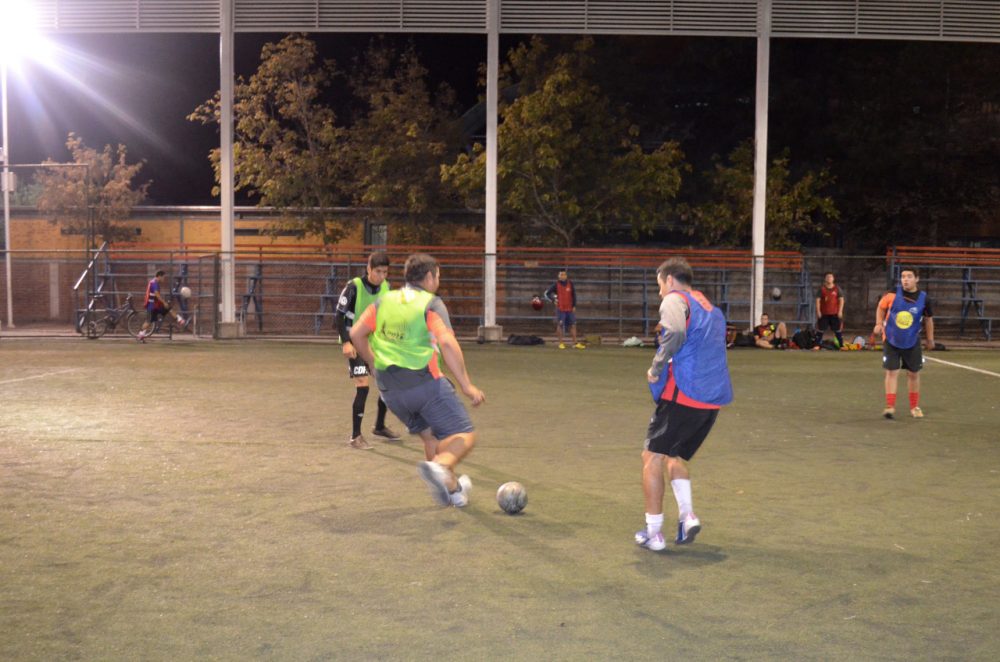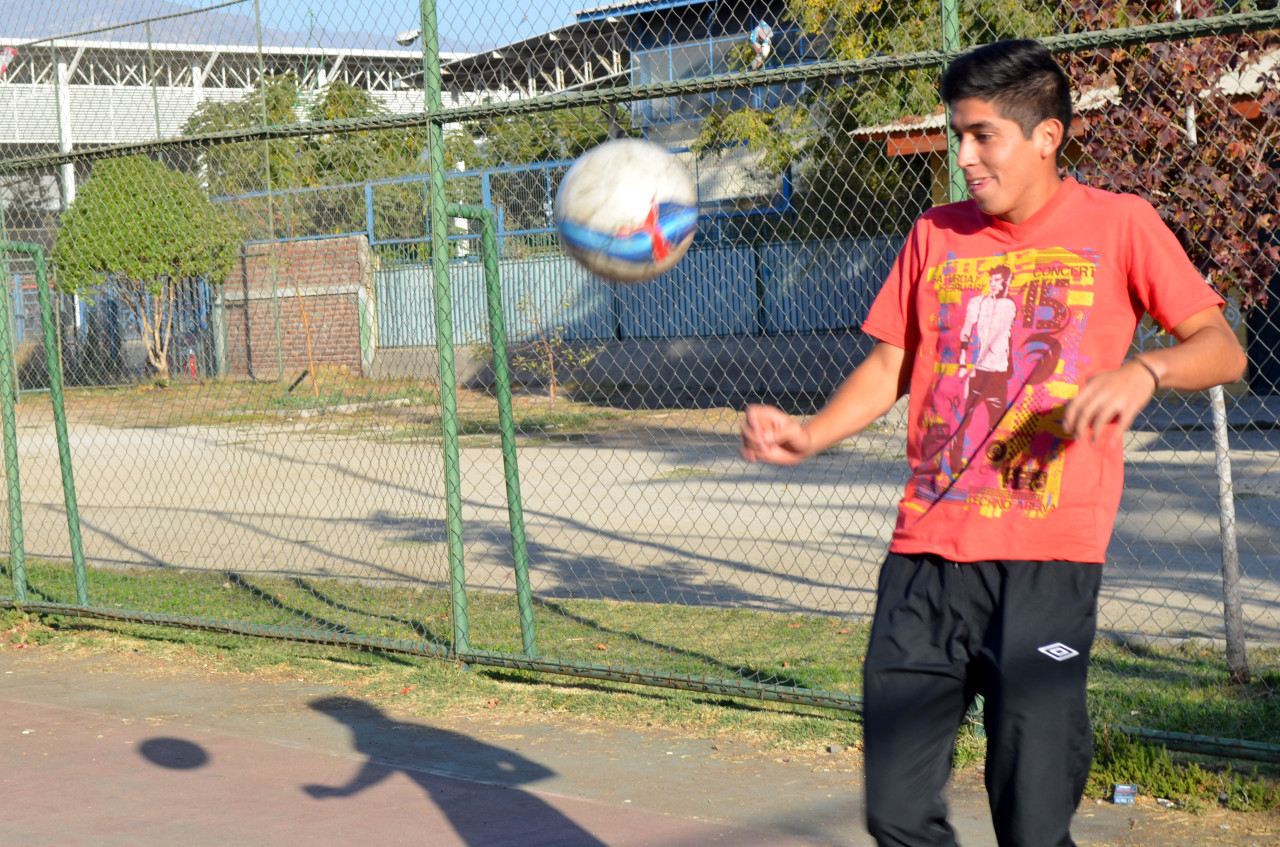Advertisement
For Chile's Homeless, Soccer Is More Than A Game

It’s 9 p.m. and the sun went down long ago, but that’s not stopping this group of about 20 young men from playing soccer under the bright lights of a turf field in Puente Alto, a poor suburb to the south of Santiago, Chile.
Homeless Soccer aims to offer the benefits of sports to Chile’s homeless. It’s been so successful that, over the past eight years, it’s grown from one team that practiced in one Santiago park to almost 100 teams all over the country.
He says that the only treatment he received was our warm welcome and our sport -- soccer.
Juan Erazo, Homeless Soccer in Chile director
Domingo Correa is a longtime participant in Homeless Soccer. He first joined back in 2011, and his nickname is Jack Sparrow. With his long dreadlocks and beard, his piercings and rings and his high, sharp cheekbones, he lives up to the name. But Correa doesn’t have a pirate ship, much less any treasure. For 15 years, he lived on the streets of Santiago.
“There’s no way out, you know?” Correa said. “You think everything has been lost. You have no hope of finding stable work. Also, I had been involved in crime, so I had ‘stained papers,’ as we say here: I had a criminal history. The distance between society and living on the street is enormous.”
One day, while Correa was watching a Homeless Soccer practice in a Santiago park, the team’s psychologist invited him to join in. He decided to take a stab at it, and he liked what he found. For the first time, there was a group of people that was always there for him – every Monday and Wednesday evening on the soccer field.
“A homeless person doesn’t matter to anyone: no one sees him, no one’s interested in him,” he said. “If you’re sick, if you’re in jail, if you’re hungry, if you’re cold — you go unnoticed, you know?”
Homeless Soccer practices are free. They’re led by professional soccer coaches and attended by psychologists and social workers since part of the idea is to connect homeless people to a wide range of services. They also have rules.
Correa said he couldn’t go to practice drunk or high. After 15 years of alcoholism and drug addiction, staying sober proved difficult at first. The second time Correa showed up high, his coach told him he’d be suspended from Homeless Soccer for a month if he came to practice under the influence again. That’s when Correa says he got serious about staying clean.
“The other guys told me, ‘Oh yeah, you’re clean,’ you know?” he said. “ And so they stopped offering me alcohol or drugs because they saw that I was focused on turning my life around completely.”
Advertisement
Juan Erazo is the director of Homeless Soccer in Chile, which runs soccer programs for young people from poor families and for ex-convicts as well as for homeless people. He said that Correa did indeed manage to sober up.
“He wasn’t hospitalized for doing drugs,” Erazo said. “He was never given any pills. He says that the only treatment he received was our warm welcome and our sport — soccer.”
Because of Correa’s good conduct and his hard work on the field, he was offered a place on the Chilean national homeless soccer team. The team would travel to Paris and place fifth in the 2011 Homeless World Cup. The next Homeless World Cup will be held in Santiago starting Oct. 19.
“Our objective is to be a point of reference for at-risk people — that it’s possible to move forward both on a big scale — like going back to school, finishing primary school, or finding a job, or getting off the street, renting a room or a house or recovering familial ties — but also on a smaller scale, like making new friends,” Erazo stated.

One of the Puente Alto players who hopes to be chosen to represent Chile in this year’s Homeless World Cup is 20-year-old Fabián Narvai Rivera. Narvai always loved to play soccer with his friends in the street, and he dreamed of being a professional soccer player. But he never had the opportunity to play for a team until, two years ago, when he was brought to a practice.
“That day, I was with my friend, and I felt comfortable and everything,” Narvai said. “I played really well that day. I made goals. I felt good at that practice. That’s why I continued, because I felt comfortable with the other players, with the coach. It was a good environment.”
After returning from the 2011 Homeless World Cup, Correa moved back in with his mother.
“She was the one who most suffered because she had to open the door for the police who came to the house to look for me,” he said. “Or she had to go to court to rescue me. For a long time, she didn’t see me; she didn’t know where I was; she didn’t know if I was going to return dead or alive. So I think that now she is the happiest mother in the world.”
Domingo Correa now has a house and a job as a groundsman at the Homeless Soccer headquarters. And, whenever he can, he goes to Homeless Soccer practices to tell the players that they can turn their lives around. All it takes is a little soccer.
This segment aired on June 7, 2014.